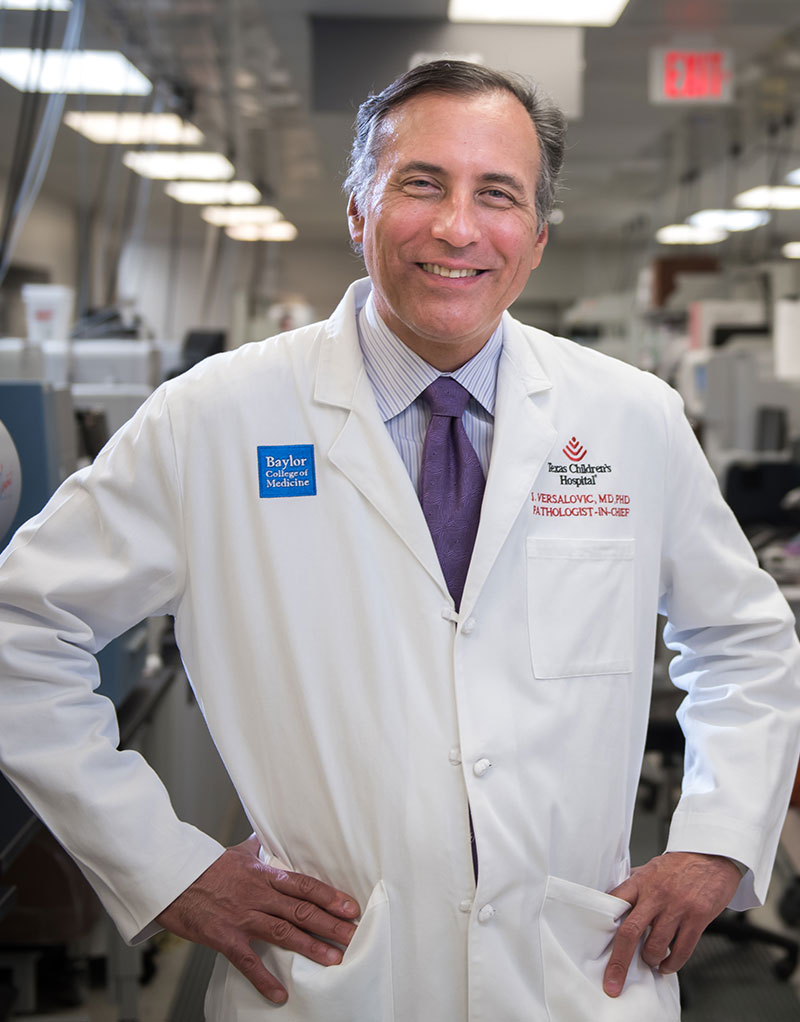Dear Colleagues,
In 2019, our Department of Pediatrics at Baylor College of Medicine and Texas Children’s Hospital continued to shine. For the first time for any pediatric hospital in the state, Texas Children’s was ranked No. 3 among all children’s hospitals in the nation. Also for the first time, Texas Children’s ranked in the top 10 in each of the pediatric subspecialties recognized in the U.S. News & World Report study.
...
We have wonderfully talented faculty doing great work in the clinical, research and educational areas and making these truly outstanding rankings possible. We hope you enjoy reading the following stories and learning more about the advancements changing the landscape of today’s pediatric care.
- Many kidney diseases can be managed medically, but when a child’s kidneys no longer function, a transplant is the best option for survival and quality of life. A now-thriving little girl was the beneficiary of the 500th kidney transplant performed at Texas Children’s Hospital, a milestone few other hospitals have achieved.
- Through improvements in medical and surgical care along with technological innovations, most children, who previously would have died from congenital heart defects, now live to adulthood. We have brought together the specialized knowledge and experience needed in a program to care for these long-term survivors with congenital heart disease.
- After hospitalization at Texas Children’s Hospital, most children go home and resume life as if nothing had changed, but for children with complex disease processes, their journey does not end. Our complex care program supports these children and their families.
- Neglected tropical diseases are generally overlooked by large pharmaceutical companies because they primarily affect poverty-stricken populations with little chance for any intervention to be profitable. Our investigators are working on a vaccine for schistosomiasis, a disease that infects more than 290 million people worldwide.
- Two of our faculty have worked for over 10 years to develop a revolutionary new type of immunotherapy – chimeric antigen receptor-natural killer T-cell (CAR NKT) therapy. It is expected to be available for the treatment of pediatric neuroblastoma and potentially other types of solid-tumor cancers.
- In infants and young children, language development improves brain development and has a positive impact on their future. In a free program called upWORDS, we help parents improve their children’s language skills.
Because we recognize that training the next generation of pediatricians is a vital part of what we do, we would like to spotlight one educator who’s had an immeasurable impact on the learners the educator teaches. This year, we feature cardiologist Dr. Antonio R. “Tony” Mott. We hope you enjoy his story and the others in this annual report.
Wishing everyone all the best,
Interim Chairman
Department of Pediatrics
Baylor College of Medicine
Interim Physician-in-Chief
Texas Children’s Hospital
 Gordon E. Schutze, M.D.
Gordon E. Schutze, M.D. James Versalovic, M.D., Ph.D.
James Versalovic, M.D., Ph.D.





